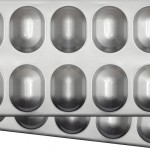
There is a need for a rapid-acting, non-injection, acute treatment for agitation in people with schizophrenia. This randomised (double-blind, placebo-controlled, parallel-group) controlled trial set out to evaluate the effectiveness and safety of inhaled loxapine for acute treatment of agitation in schizophrenia. The researchers recruited 344 adults with DSM-IV schizophrenia who were in good general health [read the full story…]








